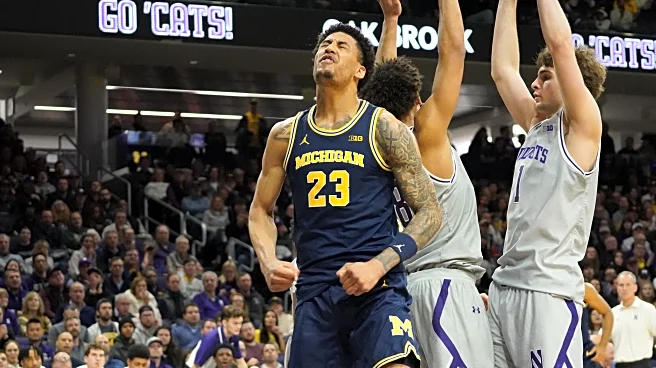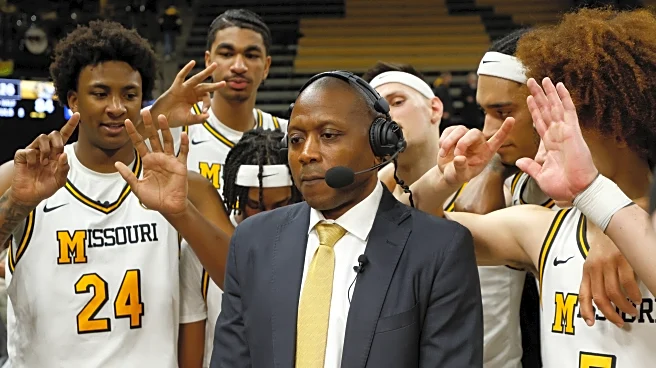What's Happening?
The Pittsburgh Penguins are undergoing a significant transition as they prepare for the upcoming NHL season. Newly appointed head coach Muse, who replaced Mike Sullivan on June 4, is tasked with integrating a mix of veteran players and emerging young talent. The team continues to rely on seasoned players such as Sidney Crosby, Evgeni Malkin, Kris Letang, Erik Karlsson, Bryan Rust, and Rickard Rakell. However, the focus is also on developing younger players like forwards Rutger McGroarty and Ville Koivunen, both in their early twenties, and defenseman Owen Pickering, who is entering his second season. This blend of experience and youth is crucial as the Penguins aim to maintain their competitive edge while fostering future stars.
Why It's Important?
The Penguins' strategy of blending veteran leadership with youthful energy is pivotal for their long-term success. The established players bring a wealth of experience and high standards, which can guide the younger athletes in their development. This approach not only aims to keep the team competitive in the short term but also ensures sustainability by nurturing future talent. The success of this strategy could influence other NHL teams facing similar transitions, highlighting the importance of balancing immediate performance with future growth.
What's Next?
As the season progresses, the Penguins will closely monitor the performance and development of their younger players. Coach Muse's ability to effectively manage this transition will be critical. The team may make adjustments based on the evolving dynamics between the veteran core and the emerging players. Stakeholders, including fans and management, will be keenly observing how this strategy unfolds, potentially impacting future coaching decisions and player development programs.
Beyond the Headlines
This youth movement within the Penguins could have broader implications for the NHL, as teams increasingly focus on developing homegrown talent. The ethical considerations of player development, such as ensuring fair opportunities and support for young athletes, are also significant. Additionally, the cultural shift towards valuing long-term team building over immediate success may influence league-wide strategies.










